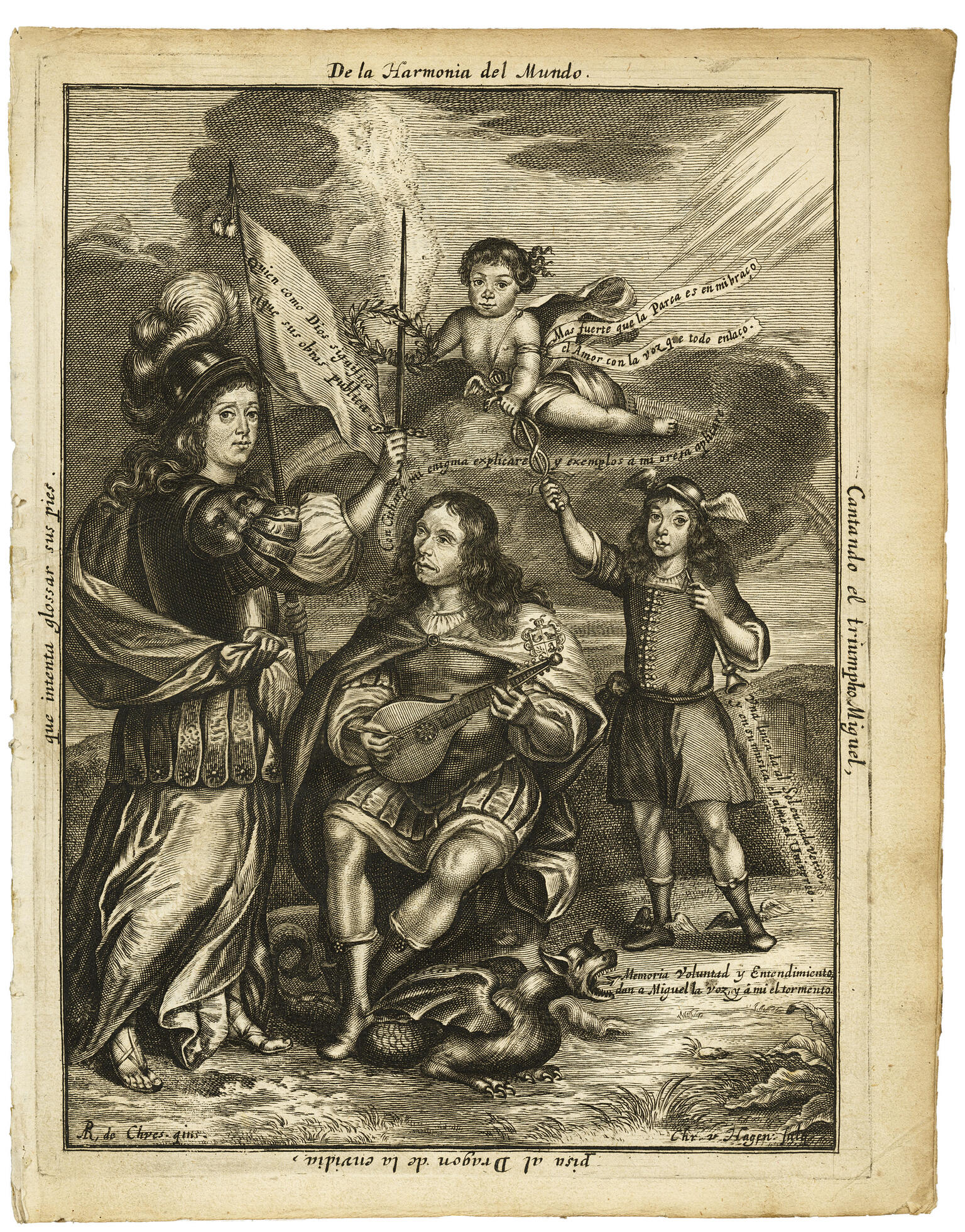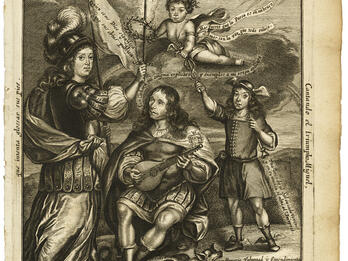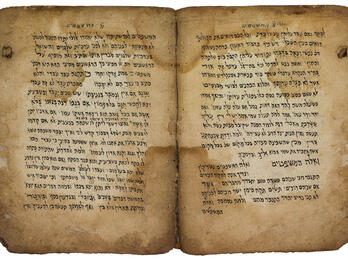On Life’s Deception and Disillusion
Sonnet IX
Sad is the man who forgets God
without waking from the dream of his error,
and of the evil that awaits him is never aware
until his sin of his death is the cause.
In his obstinate and unfelt sin,
the uncertain pleasure that diverts him
is a treacherous friend that causes his death
through the very delight of living.
Happy is the one who to himself justly denies
the vain world that to harm him seeks
and where death in life he receives.
For of the one that the world injures for being humble
it cannot be said that he then lives
because he has no life until death he endures.
Translated by .
David
Herman
Credits
Daniel Levi de Barrios, “Al engaño y desengaño de la vida” (On Life’s Deception and Disillusion),” in Flor de Apolo by Miguel de Barrios (i.e. Daniel Levi de Barrios) (Bruxelles: Baltasar Vivien, 1665), 201. Republished in: Antología Sefaradí, 1492–1700: Respuesta Literaria de Los Hebreos Españoles a La Expulsión de 1492, ed. María del Carmen Artigas (Madrid: Editorial Verbum, 1997), 120.
Published in: The Posen Library of Jewish Culture and Civilization, vol. 5.






